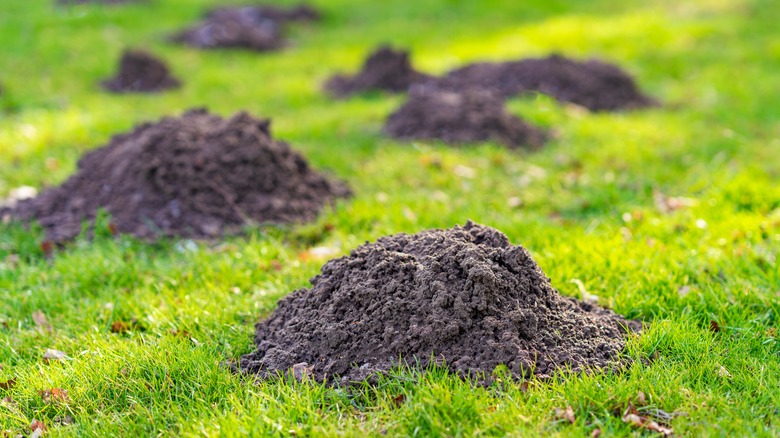In their quest for food and shelter, various pests will make pit stops in your yard. Garden moles are one variety that will no doubt make their presence known. As you’re deploying every trick up your sleeves to curb a mole infestation, you may be tempted to douse your garden traps with WD-40. This product is a hydrocarbon-based lubricant, and due to its strong odor and the impact it could have on your yard, you might want to think twice before using it to eradicate garden moles.
Moles are nuisances for many homeowners because of their burrowing habits. People who have experienced these rodents’ effects know all too well the extent of the damage they can inflict and would likely do anything to get rid of them. Although these animals are carnivorous and thus won’t eat your cucumbers and tomatoes, they will uproot plants, dig up soil, and lay waste in your garden.
Countless alleged remedies and mole traps are available online for gardens with mole infestations, but none seem as dangerous to the environment as using WD-40 to lubricate old or rusty traps. WD-40 will not only repel the moles away from the trap due to its harsh smell, but if the lubricant gets anywhere near your plants, it can harm your garden in the long run.
WD-40 repels moles from traps

WD-40 is full of petroleum products, hydrocarbons like alkanes, and mineral oil. When applied to traps that are used to capture or kill garden moles, they lubricate them and ensure their functionality. However, this won’t necessarily help control pests, as garden moles will likely steer clear of them. Contrary to popular belief, moles do have eyes, but that doesn’t mean they have 20-20 vision. They generally have poor eyesight and rely on other senses — specifically their olfactory system — to get around. They have a keen sense of smell, which is why the harsh scent of petrochemicals would send them running before they even reach the trap, defeating its whole purpose.
Furthermore, WD-40 isn’t meant to be used directly in the ground or near your garden. Lubricating garden tools, for example, is fine, but lacing traps or even pouring the substance into mole holes and burrows is a recipe for disaster. These traps stay out all day, even during rain when the lubricant can be washed into the soil. This is toxic for both the soil and your garden plants. WD-40 can kill plant leaves and other delicate parts of your edible garden. It also contaminates them when they absorb the lubricant from the ground. Fortunately, there are more organic ways to get rid of garden moles.
Organic ways to get rid of garden moles

Ridding your property of garden moles is tricky because of all the tunnels they dig. Since they rarely come up to the surface during most people’s watchful hours, it’s rare to even spot one, let alone know where they are at any given time. It doesn’t help that they can blaze through your yard, creating up to 150 feet of tunnels every day. Even so, they aren’t invincible. Stay away from poisons, fumigants, or even traps if you have small children or pets that could be put in harm’s way; instead, there are some natural solutions you can use to get rid of garden moles.
If you’re the coffee-loving type and can’t go a morning without a cup or two, then this tip is for you. Sprinkle some fresh or brewed coffee grounds around molehills and all over your yard. The overpowering aroma will deter the vermin. When it rains, reapply the grounds. While this isn’t an official method backed by research, anecdotal evidence seems to support it. The caveat for this method is that you won’t be able to sprinkle grounds into all parts of the moles’ tunnels, so they can still avoid them. Another way to chase moles out of your garden is by making a 1:3 mixture of vinegar and water and spraying it in and around molehills. If your effort doesn’t pay off, you might want to consider hiring pest control.
